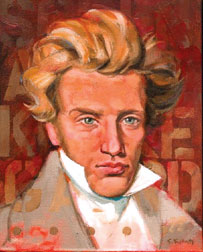Can we relive past pleasures?
 Is there a trick or formula to remain happy all the time? To remain
happy, we cling to various things such as sports, music, drama, poetry,
meditation, dancing or even walking along the sun-kissed beaches. There
are thousands of books that offer advice on how to achieve happiness.
However, no one has shown us the royal road to happiness. Is there a trick or formula to remain happy all the time? To remain
happy, we cling to various things such as sports, music, drama, poetry,
meditation, dancing or even walking along the sun-kissed beaches. There
are thousands of books that offer advice on how to achieve happiness.
However, no one has shown us the royal road to happiness.
Is there a trick or formula to remain happy all the time? To remain
happy, we cling to various things such as sports, music, drama, poetry,
meditation, dancing or even walking along the sun-kissed beaches. There
are thousands of books that offer advice on how to achieve happiness.
However, no one has shown us the royal road to happiness.
Happiness is a very tricky concept. At this moment we feel extremely
happy, but the next moment our happiness is shattered by some unforeseen
event. We really do not know why happiness suddenly manifests itself and
disappears without a trace. Many philosophers down the ages have tried
to understand and explain why this happens when humans have advanced in
many areas of science and technology.
The celebrated Danish philosopher, theologian, literary and social
critic Soren Kierkegaard too felt extremely happy one day. He was
overwhelmed by a sense of well-being one morning. Towards the afternoon,
he reached the climax of happiness. He felt so light hearted that even
his body became weightless. He began to savour the delights of complete
happiness, walking effortlessly like a bird flying over a field of corn.
Suddenly, he felt as if he was drifting over the sea and clouds!
Bubble of happiness
Precisely at one o’clock, Kierkegaard got something in his eye. The
bubble of happiness he was living in burst. From that moment, he
abandoned the hope of experiencing complete happiness. Thereafter, he
did not expect complete contentment even in isolated moments.
|

Soren Kierkegaard: The only thing
that repeated itself was the impossibility
of a repetition. |
Not only Kierkegaard, but most of us have experienced the transient
nature of happiness. For instance, the happiness we enjoy on our
honeymoon won’t last a lifetime. We soon forget the happiness we
experience over examination successes. Even when we reach our desired
goals in life, our happiness will not last long. Do we have to feel
sorry for ourselves because we are unable to retain the happiness for
ever?
Apart from this spontaneous manifestation of happiness, Kierkegaard
wants us to consider another aspect of the same problem: Can we recreate
the circumstances of a previous occasion when we were extremely happy?
All of us are growing old. We may not get the job we desired. We may
not be able to marry our dream girl or the prince charming. However, we
have memories of past events when we enjoyed life completely with
someone we loved to be with. Sometimes, most of us wish to go back to
the past and relish its happiness.
Fiancee
Kierkegaard also wrestled with the same problem. He did not treat his
young fiancee Regine Olsen well. But he soon realised that it was a
futile attempt to recreate the physical conditions associated with a
time of happiness in the past. Like most of us, he also felt that it is
impossible to live in the same old house or to look at the beautiful
face at the window. The house itself may have collapsed.
The girl at the window may have grown old. In fact, Kierkegaard made
a trip to Berlin, thinking that he could relive his former pleasures. In
an essay about his unusual experiment he says, “The only thing that
repeated itself was the impossibility of a repetition.”
Most of our parents tried to mould us in the way they desired. We do
the same with our children. We expect our children to be doctors,
engineers, accountants and architects. Some of them may get into the
mould we prepare for them, but others will go their own way. Should we
try to control the destinies of our children? Kierkegaard often reminds
us of the dangers of trying to control anybody’s life too much.
Repetition
Giving numerous examples from his life, he reminds us that
“repetition” or the desire to live in the past is a waste of time and
energy. The main reason is that we cannot recreate exactly a set of once
familiar circumstances because places and people change or disappear. On
the other hand, there is no need to go back to the past because the most
surprising things will happen in the future.
Christians believe that God has infinite plans for man. Nobody knows
what they are until they take place suddenly. Even others need not worry
about the past or consult fortune tellers to know what is in store for
them in the future. The past provided us with moments of happiness. The
future will do the same.
Soren Kierkegaard gives us food for thought. The past is dead and the
future is uncertain. The most important time is the present moment. We
must not waste it in idle talk and wishful thinking.
|

